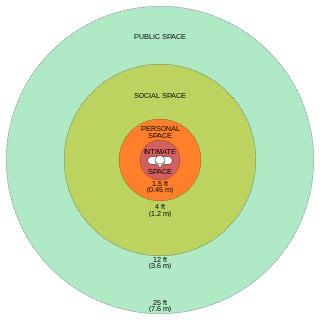
A descriptive statistic is a summary statistic that quantitatively describes or summarizes features from a collection of information, while descriptive statistics is the process of using and analysing those statistics. Descriptive statistics is distinguished from inferential statistics by its aim to summarize a sample, rather than use the data to learn about the population that the sample of data is thought to represent. This generally means that descriptive statistics, unlike inferential statistics, is not developed on the basis of probability theory, and are frequently nonparametric statistics. Even when a data analysis draws its main conclusions using inferential statistics, descriptive statistics are generally also presented. For example, in papers reporting on human subjects, typically a table is included giving the overall sample size, sample sizes in important subgroups, and demographic or clinical characteristics such as the average age, the proportion of subjects of each sex, the proportion of subjects with related co-morbidities, etc.
A case study is an in-depth, detailed examination of a particular case within a real-world context. For example, case studies in medicine may focus on an individual patient or ailment; case studies in business might cover a particular firm's strategy or a broader market; similarly, case studies in politics can range from a narrow happening over time like the operations of a specific political campaign, to an enormous undertaking like world war, or more often the policy analysis of real-world problems affecting multiple stakeholders.
The hypothetico-deductive model or method is a proposed description of the scientific method. According to it, scientific inquiry proceeds by formulating a hypothesis in a form that can be falsifiable, using a test on observable data where the outcome is not yet known. A test outcome that could have and does run contrary to predictions of the hypothesis is taken as a falsification of the hypothesis. A test outcome that could have, but does not run contrary to the hypothesis corroborates the theory. It is then proposed to compare the explanatory value of competing hypotheses by testing how stringently they are corroborated by their predictions.

Quantitative research is a research strategy that focuses on quantifying the collection and analysis of data. It is formed from a deductive approach where emphasis is placed on the testing of theory, shaped by empiricist and positivist philosophies.
Inductive reasoning is any of various methods of reasoning in which broad generalizations or principles are derived from a body of observations. This article is concerned with the inductive reasoning other than deductive reasoning, where the conclusion of a deductive argument is certain, given the premises are correct; in contrast, the truth of the conclusion of an inductive argument is at best probable, based upon the evidence given.
Educational research refers to the systematic collection and analysis of evidence and data related to the field of education. Research may involve a variety of methods and various aspects of education including student learning, interaction, teaching methods, teacher training, and classroom dynamics.
A conceptual framework is an analytical tool with several variations and contexts. It can be applied in different categories of work where an overall picture is needed. It is used to make conceptual distinctions and organize ideas. Strong conceptual frameworks capture something real and do this in a way that is easy to remember and apply.

In its most common sense, methodology is the study of research methods. However, the term can also refer to the methods themselves or to the philosophical discussion of associated background assumptions. A method is a structured procedure for bringing about a certain goal, like acquiring knowledge or verifying knowledge claims. This normally involves various steps, like choosing a sample, collecting data from this sample, and interpreting the data. The study of methods concerns a detailed description and analysis of these processes. It includes evaluative aspects by comparing different methods. This way, it is assessed what advantages and disadvantages they have and for what research goals they may be used. These descriptions and evaluations depend on philosophical background assumptions. Examples are how to conceptualize the studied phenomena and what constitutes evidence for or against them. When understood in the widest sense, methodology also includes the discussion of these more abstract issues.

In research design, especially in psychology, social sciences, life sciences and physics, operationalization or operationalisation is a process of defining the measurement of a phenomenon which is not directly measurable, though its existence is inferred from other phenomena. Operationalization thus defines a fuzzy concept so as to make it clearly distinguishable, measurable, and understandable by empirical observation. In a broader sense, it defines the extension of a concept—describing what is and is not an instance of that concept. For example, in medicine, the phenomenon of health might be operationalized by one or more indicators like body mass index or tobacco smoking. As another example, in visual processing the presence of a certain object in the environment could be inferred by measuring specific features of the light it reflects. In these examples, the phenomena are difficult to directly observe and measure because they are general/abstract or they are latent. Operationalization helps infer the existence, and some elements of the extension, of the phenomena of interest by means of some observable and measurable effects they have.

Grounded theory is a systematic methodology that has been largely applied to qualitative research conducted by social scientists. The methodology involves the construction of hypotheses and theories through the collecting and analysis of data. Grounded theory involves the application of inductive reasoning. The methodology contrasts with the hypothetico-deductive model used in traditional scientific research.
Descriptive research is used to describe characteristics of a population or phenomenon being studied. It does not answer questions about how/when/why the characteristics occurred. Rather it addresses the "what" question. The characteristics used to describe the situation or population are usually some kind of categorical scheme also known as descriptive categories. For example, the periodic table categorizes the elements. Scientists use knowledge about the nature of electrons, protons and neutrons to devise this categorical scheme. We now take for granted the periodic table, yet it took descriptive research to devise it. Descriptive research generally precedes explanatory research. For example, over time the periodic table's description of the elements allowed scientists to explain chemical reaction and make sound prediction when elements were combined.

Research design refers to the overall strategy utilized to answer research questions. A research design typically outlines the theories and models underlying a project; the research question(s) of a project; a strategy for gathering data and information; and a strategy for producing answers from the data. A strong research design yields valid answers to research questions while weak designs yield unreliable, imprecise or irrelevant answers.
Designing Social Inquiry: Scientific Inference in Qualitative Research is an influential 1994 book written by Gary King, Robert Keohane, and Sidney Verba that lays out guidelines for conducting qualitative research. The central thesis of the book is that qualitative and quantitative research share the same "logic of inference." The book primarily applies lessons from regression-oriented analysis to qualitative research, arguing that the same logics of causal inference can be used in both types of research.

Comparative historical research is a method of social science that examines historical events in order to create explanations that are valid beyond a particular time and place, either by direct comparison to other historical events, theory building, or reference to the present day. Generally, it involves comparisons of social processes across times and places. It overlaps with historical sociology. While the disciplines of history and sociology have always been connected, they have connected in different ways at different times. This form of research may use any of several theoretical orientations. It is distinguished by the types of questions it asks, not the theoretical framework it employs.

Analytical skill is the ability to deconstruct information into smaller categories in order to draw conclusions. Analytical skill consists of categories that include logical reasoning, critical thinking, communication, research, data analysis and creativity. Analytical skill is taught in contemporary education with the intention of fostering the appropriate practices for future professions. The professions that adopt analytical skill include educational institutions, public institutions, community organisations and industry.
In statistics, qualitative comparative analysis (QCA) is a data analysis based on set theory to examine the relationship of conditions to outcome. QCA describes the relationship in terms of necessary conditions and sufficient conditions. The technique was originally developed by Charles Ragin in 1987 to study data sets that are too small for linear regression analysis but large enough for cross-case analysis.

A hypothesis is a proposed explanation for a phenomenon. A scientific hypothesis must be based on observations and make a testable and reproducible prediction about reality, in a process beginning with an educated guess or thought.
Psychological research refers to research that psychologists conduct for systematic study and for analysis of the experiences and behaviors of individuals or groups. Their research can have educational, occupational and clinical applications.
Process tracing is a qualitative research method used to develop and test theories. Process-tracing can be defined as the following: it is the systematic examination of diagnostic evidence selected and analyzed in light of research questions and hypotheses posed by the investigator. Process-tracing thus focuses on (complex) causal relationships between the independent variable(s) and the outcome of the dependent variable(s), evaluates pre-existing hypotheses and discovers new ones. It is generally understood as a "within-case" method to draw inferences on the basis of causal mechanisms, but it can also be used for ideographic research or small-N case-studies. It has been used in social sciences, as well as in natural sciences.
A working hypothesis is a hypothesis that is provisionally accepted as a basis for further ongoing research in the hope that a tenable theory will be produced, even if the hypothesis ultimately fails. Like all hypotheses, a working hypothesis is constructed as a statement of expectations, which can be linked to deductive, exploratory research in empirical investigation and is often used as a conceptual framework in qualitative research. The term "working" indicates that the hypothesis is subject to change.




